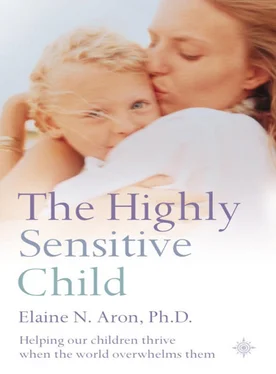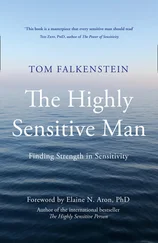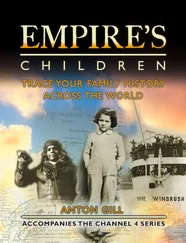1 ...8 9 10 12 13 14 ...19 Now, check off what you regard as your child’s other strengths:
Artistic ability
Scientific ability
Skill at mental games
Athletic ability
Patience
Empathy
Conscientiousness
Great sense of humor
Spiritual interests
Intelligence
Kindness
Concern for social justice
Others _______________________________________________________
Your child’s problem areas (in your opinion). Some examples might be:
Trouble with coordination or playing sports
Shyness, often afraid of being rejected
Negative mood or behavior
Stubbornness
Rudeness, selfishness, lack of consideration
“Too good”
Not able to make “small talk”
Spends too much time at computer or ____________
Anger
Too noisy, boisterous
Rejected by others for being aggressive
Rejected by others for being too passive
Slow learner
Learning disability
Attention deficit disorder
Others _______________________________________________________
Would the above problem areas be a problem for any parent, or are they things that particularly bother you? (Could you imagine this problem being “no problem” in another family?)
Major events can shape your child’s life; beside each that applies, write what you think has been the effect:
Move
Divorce
Illness
Death in family
Death of a close friend, including beloved pet
Illness in family, mental or physical
Past abuse, physical or sexual
Persistent poverty
Prejudice
Unusual successes, awards, accomplishments
Public notice
Acquiring a very close friend
A special mentor (including a close grandparent, teacher, etc.)
Trips or other experiences that made a lasting impression
Lessons (musical, athletics, etc.)
Consistent activities—soccer, Scouts, etc.
Unusual living environment (big city, inner city, country, a farm, etc.)
Religious training
Cultural resources (gets to see many plays, is taken to concerts, scientists or writers often visiting family)
Others ___________________________________________________________
Now, write a page or two about your child, based on the above—a kind of summary, as if you were explaining him to someone.
Begin with his sensitivity, then the other temperament traits he has.
List all of your child’s strengths.
Then mention the problems, in your opinion.
How are these problems affected by your view of them (would someone else find them “no problem”)?
Write something about how these strengths and weaknesses have been increased or decreased by your child’s history.
Finally, looking back at your child’s sensitivity, how has it contributed to your child’s strengths?
How has it contributed to the problems?
How has it contributed to your child overcoming her problem areas?
How has your child’s sensitivity been interwoven with her major life experiences? Did it increase their impact in some cases? Decrease it in some cases?
Go back and underline what you have learned that you did not know before. How do you think this will change how you treat your child?
Keep these pages—you may find a time when it would be useful to give them to a teacher, long-term caregiver, doctor, or interested family member.
Chapter Two
Fasten Your Seat Belts
The Challenges of Raising an Exceptional Child
In this chapter you learn why skilled parenting helps HSCs even more than other children, and why the skills are different with HSCs. We discuss the six qualities of HSCs that present the greatest challenges, and you will begin to learn how to respond effectively when they arise. We will also take note of all the joys that come with raising an HSC .
In the last chapter I mentioned Maria, a “typical” HSC who graduated summa cum laude from Harvard. But it did not happen without skilled parenting.
Maria’s parents did not have all the advantages that you might imagine come with the family of a Harvard graduate. Estelle, Maria’s mother, has had a difficult life, starting with her own childhood. She was an HSC in a troubled family that made her the scapegoat because she was different from the rest of them. As she expressed it, “At least I knew what hurts a sensitive child.”
When Maria was born, Estelle and her young husband were living below the poverty line and neither family was helpful. Indeed, Estelle felt she had to protect her new baby from the meddlers and disturbed people in both families. Her intuition was apparently right—one of Maria’s grandfathers was later convicted of child molesting. These were not easy circumstances in which to raise a child, much less an HSC.
As soon as Estelle realized that Maria was as sensitive as she had been (“I knew it at two weeks—she could maintain solid eye contact as I walked around the room”), she decided to stay home and give full attention to her daughter during the formative years. She learned all that she could about parenting, but adapted it to fit the different kind of child she knew she had—one like herself. She automatically cut the labels out of clothing. She had always preferred simple foods, so food was never a problem between them. In raising Maria, Estelle applied the understanding of both parenting and sensitivity that she wished her parents had had.
For example, Estelle rarely pushed Maria into new experiences the way some parenting books urged. But there were important exceptions, when Estelle knew Maria would be all right and was too young to know for herself what she could reasonably do and enjoy. In one instance, as a teenager, Maria was invited by family friends to go to Sweden. Maria did not want to go. Her mother insisted. Ten days into the trip, Maria called from Stockholm to say how grateful she was to her mother for forcing her to go.
Mostly, however, Estelle defended her daughter’s right to say no because of her sensitivity. In elementary school her class was obliged to watch a movie about animals being butchered. Deeply upset, Maria walked out—to her teacher’s consternation. Estelle told her she was right—she did not have to watch anything that distressed her that much. The incident and others like it led Estelle eventually to place Maria in a private school. There she blossomed, became her school’s valedictorian, and was encouraged to apply to Harvard.
Estelle always placed great emphasis on promoting Maria’s self-esteem. In high school Maria grew and grew, to over six feet—yet another characteristic that made her feel different. But although Maria was “shy,” the combination of self-esteem and sensitivity made her a natural leader. Starting even in kindergarten, kids listened to her, copied her ideas. She was cautious with new people but wanted to play with other children and did, with no obvious problems. According to her mother, she just played with fewer children than most kids did. It also seemed to Estelle that there was always a “sensitivity gap” between her daughter and other children. They were not as considerate or as aware as Maria.
Today, as a young adult, Maria’s life is not completely easy. She still wishes she was not so sensitive or tall. She is twenty-seven and still not in a “permanent relationship.” According to her mother, “she always finds something wrong with a man.” That sounds like the “sensitivity gap” she felt in childhood, coupled with the ability of highly sensitive people to spot the flaws in a close other, especially one who is not as sensitive. Maria has changed residences several times since she left college, trying to find a quiet enough place to live. But she is successful in her profession and travels to foreign countries without hesitation—that trip to Sweden she resisted was only the first of many. She is healthy and confident about her future. She is an HSC who has grown up wonderfully, thanks to responsive, sensitive parenting.
Читать дальше











